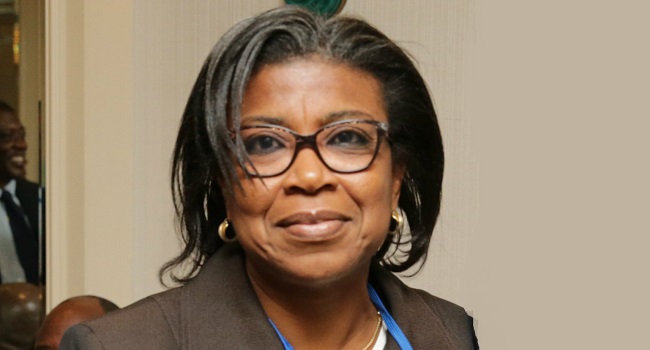News
DMO debunks reports of national assets being mortgaged over Chinese loans

The Debt Management Office (DMO) on Saturday debunked reports that some national assets were used as collateral towards the solicitation for loans from China.
This was clarified on Saturday by Ms Patience Oniha, the Director-General of DMO via an interview with the News Agency of Nigeria (NAN) on Saturday in Abuja.
She clarified that the loans were largely concessional, as no national asset was tagged as collateral.
The loans from China to Nigeria, which presently stood at 3.59 billion dollars, constitutes only 9.4 per cent of the country’s total foreign debt stock of 37.9 billion dollars, Oniha stated.
“Nigeria’s total debt stock as at Sept. 30 was 37.9 billion dollars, this figure comprised the external debt stock of the Federal Government, 36 state governments and the Federal Capital Territory.
“But total loans from China stands at 3.59 billion dollars, which is 9.47 per cent of the total external debt. The loans did not require any national asset as collateral; they were largely concessional,’’ she said.
Oniha urged Nigerians to always endeavour to verify sensitive information from official sources before disseminating it.
READ ALSO: DMO justifies Nigeria’s N35.5 trillion debt profile
She explained that before foreign loans were contracted, very sensitive steps were taken by multiple institutions of government to ensure that they were beneficial to the nation.
“Before any foreign loan is contracted, including the issuance of Eurobond, they are approved by the Federal Executive Council and thereafter, the National Assembly.
“An important and extremely critical step is that the loan agreements are approved by the Federal Ministry of Justice.
“An opinion is issued by the Attorney-General of the Federation and Minister of Justice before the agreements are signed.
“Several measures which operate seamlessly have been put in place to ensure that data on debt are available and that debt is serviced as at when due. Provisions are made explicitly for debt service in the annual budgets,’’ she said.
Oniha explained that the loans agreements provided a number of steps to take to resolve dispute when they arise.
“The first action is that the parties should resolve it within themselves and if that fails, they go to arbitration.
“In other words, a lender, in this case, China, would not just pounce on an asset at the first sign of a dispute, including defaults,’’ the she said.
She explained that the DMO maintained proper records of debts, provided projections for debt service and processed the actual payments for debt service.
Join the conversation
Support Ripples Nigeria, hold up solutions journalism
Balanced, fearless journalism driven by data comes at huge financial costs.
As a media platform, we hold leadership accountable and will not trade the right to press freedom and free speech for a piece of cake.
If you like what we do, and are ready to uphold solutions journalism, kindly donate to the Ripples Nigeria cause.
Your support would help to ensure that citizens and institutions continue to have free access to credible and reliable information for societal development.
























